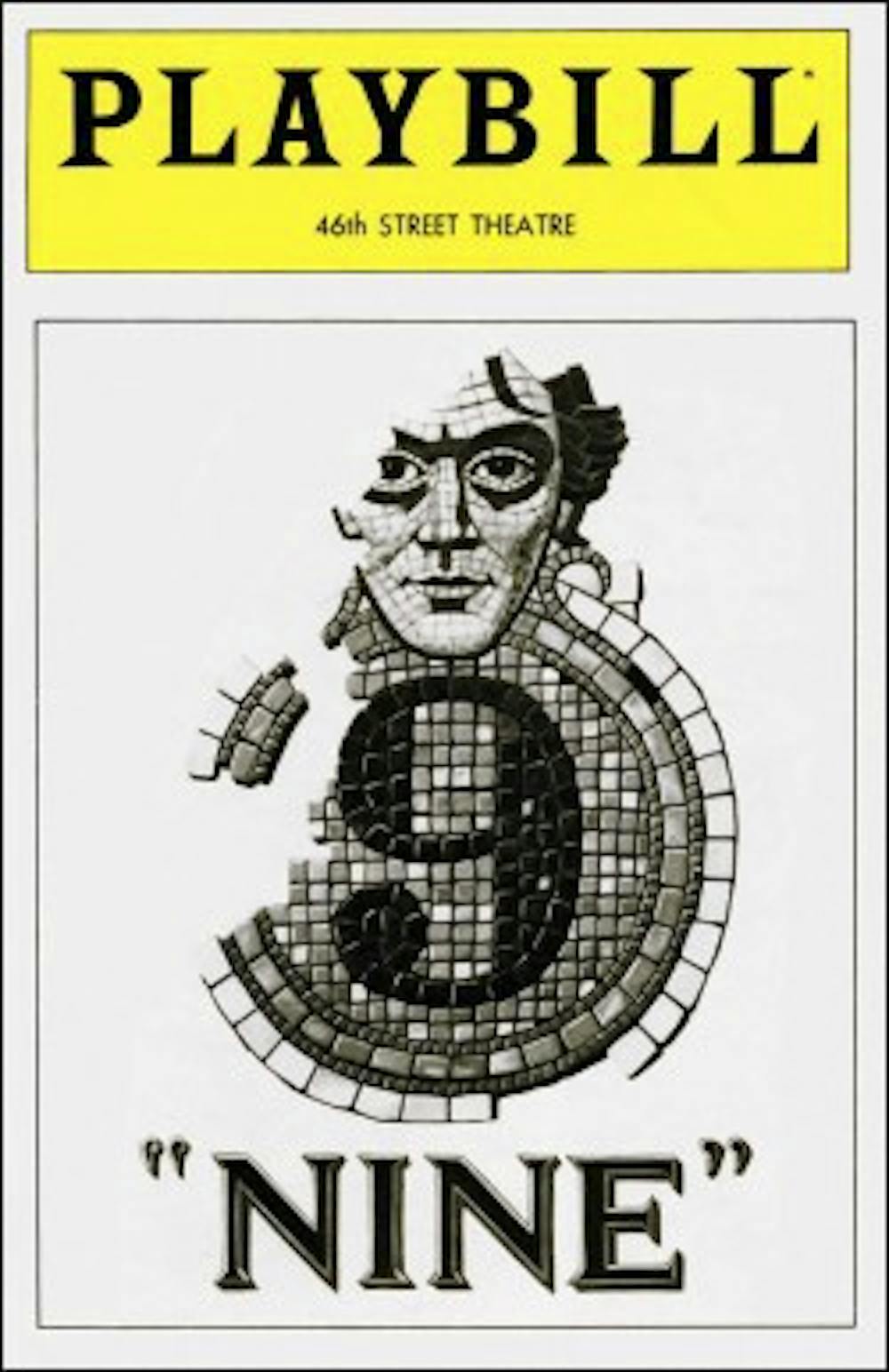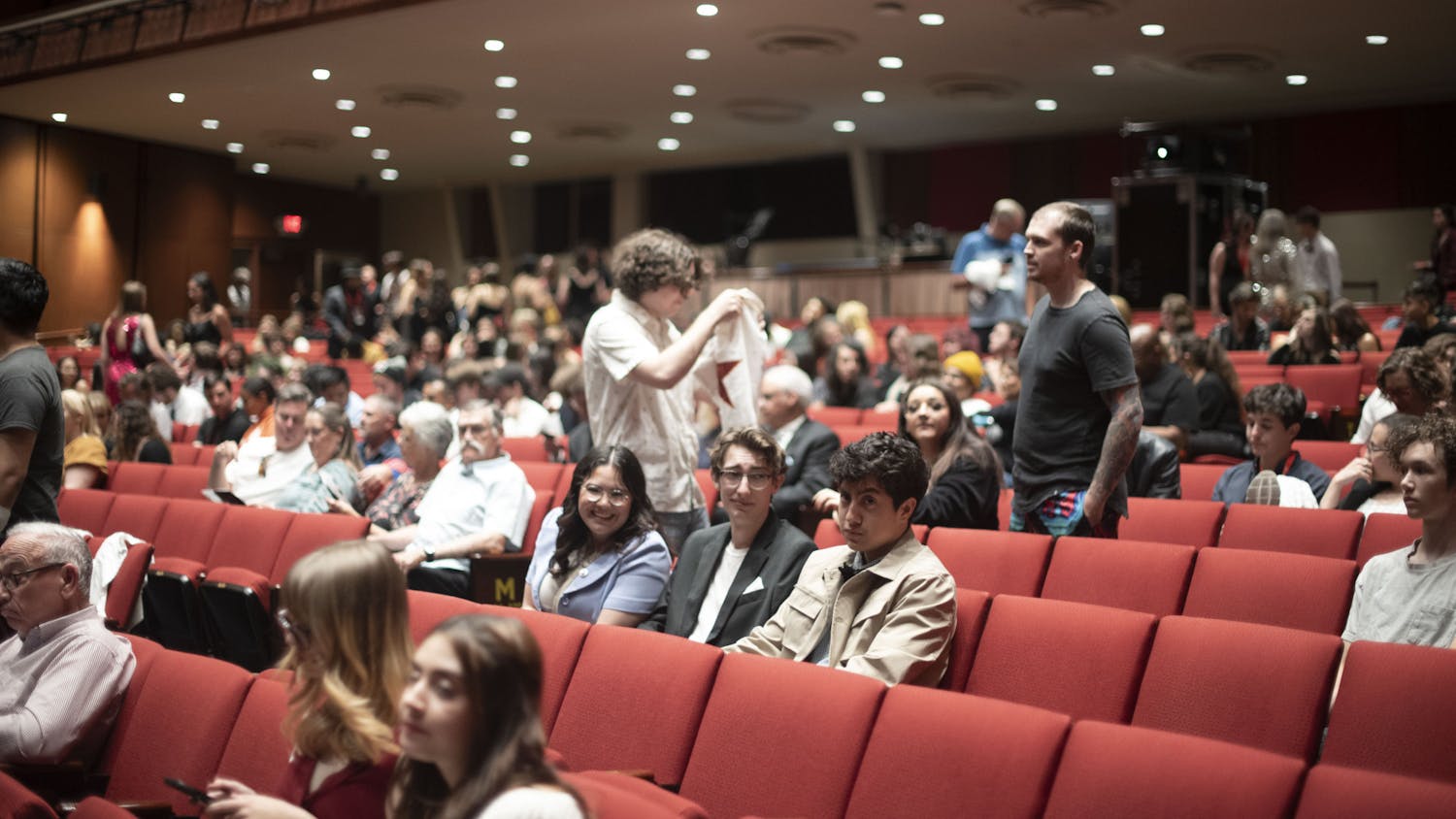“Nine,” the latest production by Musical Theatre Southwest, is a story that shines a harsh light on the consequences that come from a lack of accountability.
Musical Theatre Southwest performed an adaptation of Arthur Kopit’s book that was originally scored by Maury Yeston, and was produced in 1982 that has been adapted for both stage and film.
“Nine” takes place in 1960’s Europe and follows Guido Contini, a celebrated Italian film director, as he struggles to find an idea for his next movie. Unfortunately for him, both his work and his relationships are jeopardized by his lack of emotional maturity.
Throughout the show, the audience is able to view Guido’s memories of his childhood, and it soon becomes clear that he still has the emotional-mindset of a child.
Nowhere is Guido’s lack of maturity more evident than in his relationships with women. Despite being married to Luisa, who sacrificed her own dreams in order to support him, he still seeks out the affections of other women.
The most prominent of these relationships are with Claudia, an actress who frequently stars in Guido’s films, and Carla, Guido’s mistress who believes that he wants to marry her. He wants to be free to pursue relationships with Claudia, Carla and Luisa without having to give any of them up. His inability to see how hurtful his actions are to them are a catalyst for a spiral of self-destruction.
Robb Sisneros, the director of “Nine”, made sure to emphasize that this makes Guido both the antagonist and the victim of the story, with the strength of the female characters highlighting his weakness.
“It would have been easy to concentrate on the central character and victimize the women,” Sisneros said. “Instead, I chose to make him his own victim.”
Jonathan Gallegos, the actor behind Guido, gives a vulnerable performance that conveys his anguish and allows the character to become more than a two-dimensional villain.
The small performance space of Musical Theatre Southwest also allows the audience to become intimately connected with the show’s intense emotional life.
Along with Guido, the story examines the turmoil of the women that he hurts and the difficult decisions that they must make as a result of his actions.
Claudia, Carla, and Luisa are all emotionally invested in a man who refuses to fully commit to any of them. All of them are aware of Guido’s relationships with other women, but their own emotional attachments to him prevent them from leaving what they know is a toxic relationship.
Get content from The Daily Lobo delivered to your inbox
Claudia’s solo, “Unusual Way,” is a testament to the difficulty of acknowledging the damaging behavior of a loved one. The women’s dilemma is made especially difficult by the strict gender roles of their society, in which they are always expected to put a man’s needs before their own.
Guido’s complicity in this brand of misogyny extends to all women he interacts with, as he imagines that he is their only concern. One woman who is particularly harsh to him, the film critic Stephanie Necrophorus, is demonized by Guido but serves as one of the few voices of reason in the story.
While she recognizes his talent, she also recognizes that his privilege as a successful male director has allowed him to be praised for his more mediocre works. She intimidates Guido because she is a woman who has learned to survive in a male-dominated industry, as explained by Rebecca Grace.
“Stephanie’s not heartless for the sake of being cruel,” said Grace, the actress who plays Stephanie. “She has to be because she feels like she won’t succeed otherwise.”
While the other female characters are not as blunt as Stephanie, they come to similar conclusions as they begin to realize that Guido’s love means nothing if they do not have his respect. As Guido fights to save his relationships, along with his career, he must choose between accepting his wrongdoings or continuing on his path of self-destruction.
“Nine” has one more weekend of performances from Aug. 24 to 26. Show times are at 7:30 p.m. on Friday and Saturday, and 2 p.m. on Sunday, doors open 30 minutes ahead of time. Tickets are $22 for adults and $20 for students, seniors, and American Theatre Guild members and may be purchased at www.musicaltheatresw.com or by calling the box office at (505) 265-9119.
Veronica Apodaca is a culture reporter at the Daily Lobo. She can be contacted at culture@dailylobo.com or on Twitter @veeapodaca.






